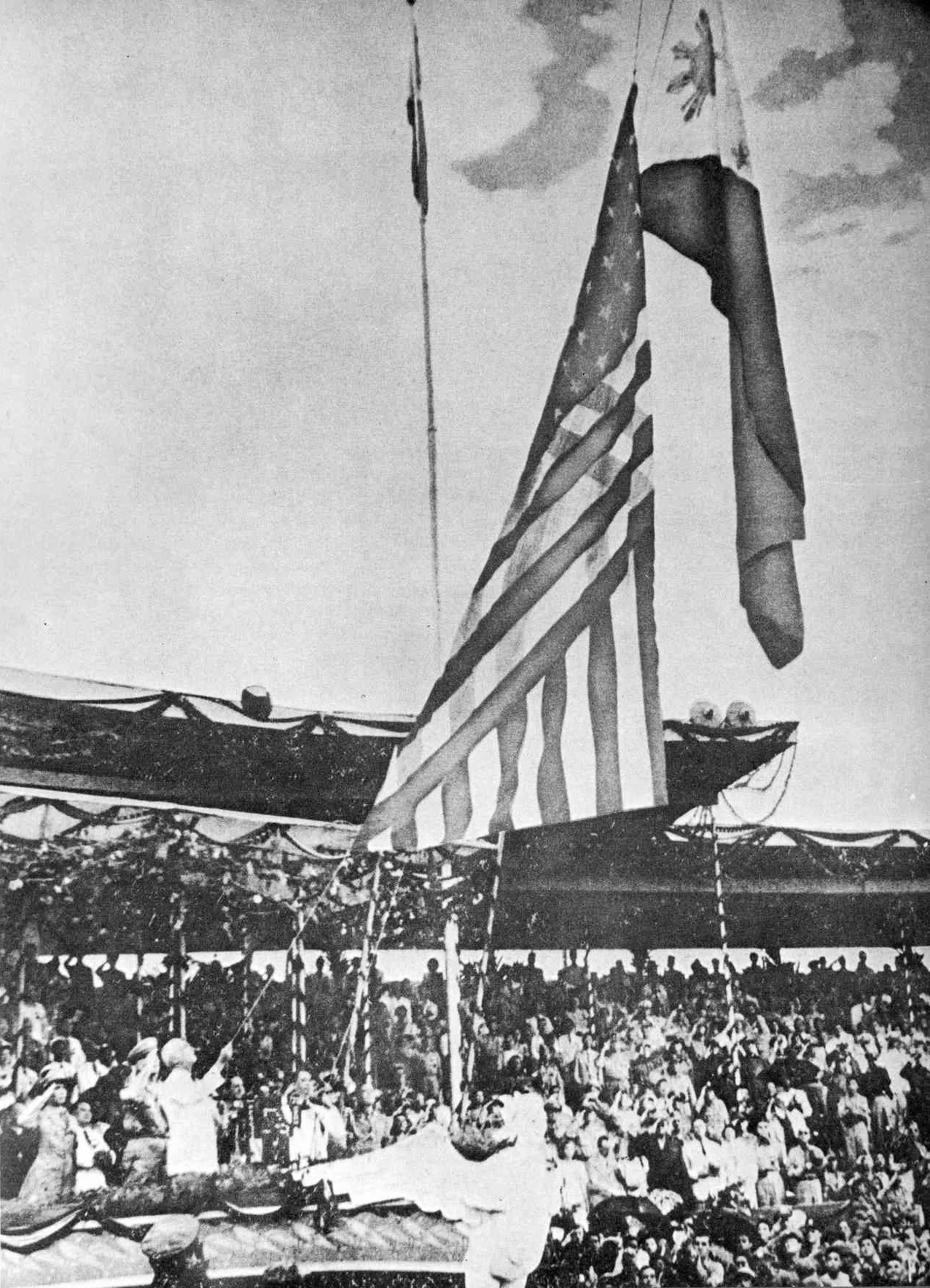Colonized by America: Fourth of July is an insult to many
The Star-Spangled Banner is lowered while the flag of the Philippines is raised during independence ceremonies, July 4, 1946. Photo: Philippine Presidential Museum and Library.
Most Americans celebrate the Fourth of July as the birthday of the United States, a day for fireworks, food, and freedom.
For people in other parts of the world and U.S. territories, this day also brings up hard truths about American history, especially in places the U.S. once colonized—or still controls.
On July 4, 1946, the U.S. officially recognized the independence of the Philippines after nearly 50 years of American rule.
That path to freedom was painful.
When the U.S. took control of the Philippines in 1898, it claimed it was helping the Filipino people. In truth, it treated them as inferior and ruled them without their consent.
American leaders used a racist belief called the “White Man’s Burden” or the idea that white Americans had to rule over people of color because they supposedly couldn’t govern themselves.
This belief wasn’t just used in the Philippines.
Native Hawaiians were overthrown in 1893 by American business and political leaders, and Hawaii was annexed by the U.S. in 1898.
The Hawaiian Kingdom, once a recognized and independent nation, was taken away from its Native people. Their land, culture, and rights were stripped from them in the name of American progress.
In Puerto Rico, the story is just as troubling.
After taking the island from Spain in 1898, the U.S. kept control of Puerto Rico without giving full rights to its people. The indigenous Taíno people, already devastated by earlier colonial powers, were further silenced.
To this day, Puerto Ricans are U.S. citizens but they cannot vote for president and have no voting power in Congress.
They live under U.S. rule without full representation.
These stories all come from the same harmful belief that some people, especially people of color, aren’t capable of deciding their own future.
It’s a belief that still exists today through Trumpism, which spreads fear of immigrants, people of color, LGBTQ+ people, and indigenous communities.
repeats the old idea that only a certain kind of person, white, Christian, “American enough,” deserves power, respect, or freedom.
That’s why the Fourth of July is not a celebration for many.
It is a moment to reflect on who still isn’t truly free: Native Hawaiians whose land was stolen, Puerto Ricans who still live under colonial rule, Filipinos whose independence came at great cost, and many others who are treated as second-class citizens in a country that claims to believe in liberty and justice for all.
True freedom means freedom for everyone.
Until that’s real, the Fourth of July remains a promise we still haven’t fully kept.

